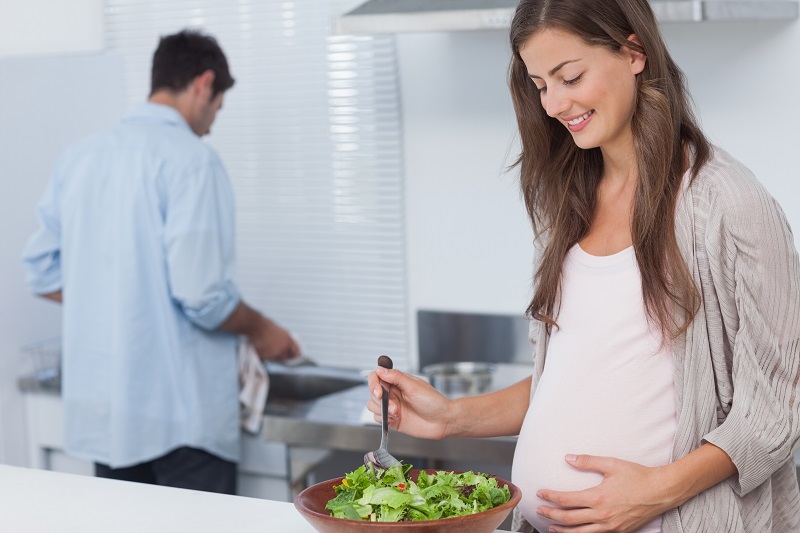Healthy Habits: 5 Important Vitamins You Need During Pregnancy

In our October issue, Dr. Kimberly K. Reynolds, a practicing physician at The Woman’s Clinic, P.A., who is board-certified in obstetrics and gynecology, shared a few rules for necessary diet changes for a healthy pregnancy. She detailed which foods women should skip completely and which are safe to consume in moderation. You can read the full article here.
Dr. Reynolds also gave a few suggestions for vitamins and supplements that women should plenty of during pregnancy. Here are five she recommends:
Calcium
You need 1,000 milligrams of calcium daily to help build Baby’s bones and teeth. Get your daily dose through milk products or non-dairy sources like broccoli, dark leafy greens, sardines, or calcium supplements.
Folic Acid
“Taking 400 micrograms of folic acid daily for at least 1 month prior to pregnancy and 600 micrograms of folic acid daily during pregnancy may help prevent major birth defects of the baby’s spine and brain called neural tube defects,” says Dr. Reynolds. You can supplement your prenatal vitamin with foods like dark green leafy veggies, orange juice, beans and fortified cereal.
Iron
“During pregnancy, you need double the amount of iron; the daily recommended dose of 27 milligrams will help your body make more blood to supply oxygen to your baby. Prenatal vitamin supplementation and foods rich in iron should be part of your daily intake,” says Reynolds. Stock up on animal proteins, or veggies like soybeans and spinach.
Omega-3 Fatty Acids
Found in many kinds of fish, omega-3 fatty acids are important to your baby’s brain and eye development. Women should eat a least two 6-ounce servings of low-mercury fish or shellfish (such as shrimp, salmon, catfish, pollock, scallops and sardines) per week. If you aren’t a seafood lover, another solution is DHA supplementation and most prenatal vitamins now contain this mercury-free omega-3 fatty acid. DHA supplementation is not a replacement for seafood intake, but can help improve the nutritional deficiency.
Vitamin D
“Pregnant women need 600 international units of vitamin D a day,” Reynolds says. “Good sources are milk fortified with vitamin D and fatty fish, such as salmon. Exposure to sunlight also converts a chemical in the skin to vitamin D.”
Bonus: Water!
“By drinking 64 fluid ounces of water (approximately 8 cups) per day, plus adding 1 cup per 1 hour of light exercise, you are preventing dehydration,” says Dr. Reynolds. “In the third trimester, dehydration can lead to preterm labor.”
